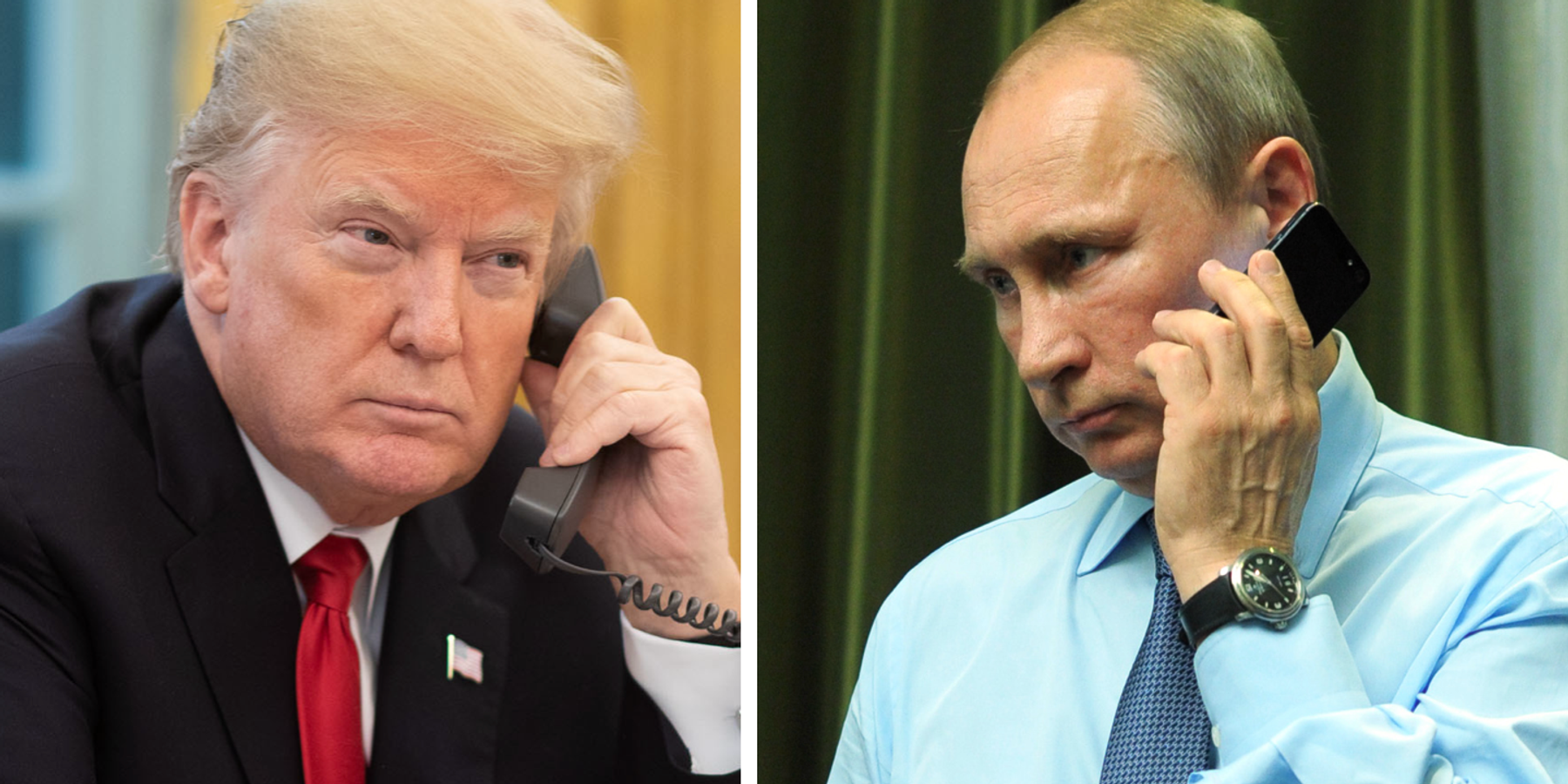If the diplomatic overtures of the past several months were seen by some as opaque, then today’s phone call between President Trump and Russian President Vladimir Putin cannot be taken as anything but proof positive that the rubber has hit the road on serious, substantive U.S.-Russia negotiations over a Ukraine peace deal.
The White House has been pushing for an all-encompassing ceasefire between Russia and Ukraine as the first step on the long road to a durable settlement. There is an obvious military rationale for doing so: the major battlefield indicators favor Russia, which is slowly overpowering Ukraine in a war of attrition and has just effectively ended the Ukrainian Armed Forces’ (AFU) high-stakes incursion into the Kursk region.
An immediate cessation of hostilities would thus prevent Ukraine’s bargaining position from further deteriorating as talks unfold. But, and precisely for this reason, Putin seeks to shape the terms of a ceasefire in Russia’s favor with stipulations that the agreement must include "the complete cessation of foreign military assistance and provision of intelligence information to Kyiv.”
The partial ceasefire on energy and infrastructure attacks, apparently agreed to by both the Russian and American sides, is a preliminary way to cut the Gordian knot as talks over a full ceasefire proceed in coming days and weeks. The energy-infrastructure truce represents substantial progress, negotiated under what is militarily a difficult situation for Ukraine, in slowly shifting from war onto a de-escalatory trajectory.
Not unimportantly, it is also a source of real succor for Ukraine’s civilian population over three years into what has been the most destructive war on the European continent since 1945.
It should not be lost on anyone that this undeniably positive momentum has been made possible by the White House’s ability — as recommend in a brief authored by me and my colleagues George Beebe and Anatol Lieven — to avoid the trap of treating this as a narrow deconfliction problem and instead demonstrating a willingness to engage Russia in a broader bilateral diplomatic track.
The Trump-Putin discussion extended far beyond Ukraine, touching on a wide spectrum of issues including cooperation in the Middle East, opportunities for economic normalization, nuclear arms control, and even a U.S.-Russia hockey series. This strategy of extending the negotiating table is not only a critical source of confidence-building to ensure compliance with any potential peace deal but gives Washington the leverage needed to mellow some of Russia’s maximalist conditions for ending the war.
Where do we go from here? Much will depend on the coming diplomatic tit-for-tat, but two things can be ascertained at the outset. It is of course crucial to maintain Ukrainian and European buy-in over the course of this process, itself no small task which will require sustained coordination with all the relevant stakeholders.
Secondly, whilst a full ceasefire remains a worthy short-term objective, the overall priority should be to engage Russia in frank, pragmatic dialogue on what the outlines of a final peace settlement can look like. Indeed, Moscow is unlikely to accept the former without a workable roadmap to the latter.
















